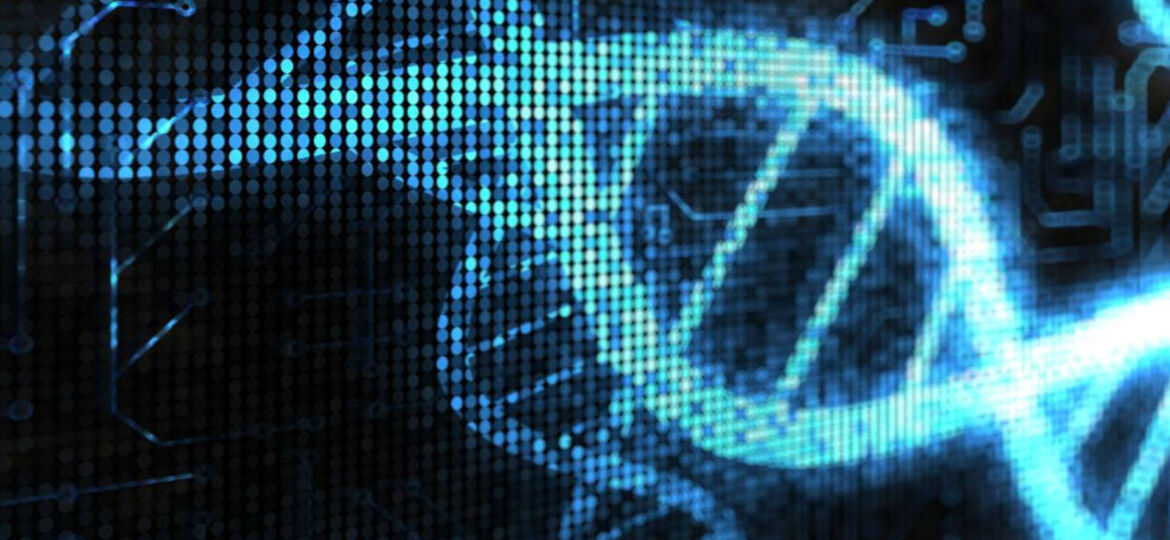
WHY THIS MATTERS IN BRIEF
DNA computers, up until now, have been theoretical but now they’re feasible, and that’s a huge step towards the next step – building one.
A team of researchers from the University of Manchester, the same university that’s recently been making breakthroughs in quantum computing, led by Professor Ross D King, have shown for the first time that it’s possible to build a super fast DNA computer that “grows” as it computes.
The result would not only be a computer that has almost infinite performance and scalability, but it would also potentially break today’s paradigm of multi-year computer development cycles because whereas today we have to create new technologies, such as new, smaller transistor designs and new nanoscale manufacturing processes to create the next generation of higher performance computer chips, tomorrow a computer that grows could simply replicate itself to get to the next “performance bar,” making computer “evolution” much, much faster, and potentially, almost instantaneous. And that would be another game changer – exponential improvement incarnate.
Yes, you read that right – grows – and their research has been published in the prestigious Journal of the Royal Society Interface. In other words what they’ve been able to show is the feasibility of engineering a Nondeterministic Universal Turing Machine (NUTM). Feasibility being the key word here.
“Imagine a computer is searching a maze and comes to a choice point, one path leading left, the other right,” explained Professor King, from Manchester’s School of Computer Science, “today’s electronic computers need to choose which path to follow first. But our new DNA computer doesn’t need to choose, because it can copy and replicate itself and follow both paths at the same time – and find the answer faster.
“This ‘magical’ property is possible because the computer’s processors are made of DNA rather than silicon chips. All electronic computers have a fixed number of chips,” he said.
Think about that for a while – a self-replicating DNA based computer that’s super fast, super small and super energy efficient. In theory just these attributes alone would make the computer faster than any other form of computer in existence, and possibly even eclipse the enormous power promised by tomorrow’s quantum computers, which have already shown that they can perform calculations hundreds of millions times faster than today’s systems.
Arguably Alan Turing, the famous scientist’s, greatest achievement was inventing the concept of a Universal Turing Machine (UTM) – a computer that can be programmed to compute anything any other computer can compute. Electronic computers are a form of UTM, but no quantum UTM has yet been built, although that should change in the next five years after two prototype quantum computers went head to head last month.
“Quantum computers are an exciting other form of computer, and they can also follow both paths in a maze, but only if the maze has certain symmetries, which greatly limits their use,” continued Professor King, “as DNA molecules are very small, a desktop computer could potentially utilise more processors than all the electronic computers in the world combined – and therefore outperform the world’s current fastest supercomputer, while consuming a tiny fraction of its energy.”
I’ll keep you posted when I see more details, however, just to throw this into the fire – if a DNA computer that uses just four bases could outperform tomorrow’s fastest quantum computers then imagine what a machine that uses six DNA bases could achieve. Fast wouldn’t be the word, and one day maybe we’ll combine them with chemical computers that can turn your own body into a computer.
Awesome.

















[…] All copyrights for this article are reserved to Quantum Computer […]
[…] All copyrights for this article are reserved to Quantum Computer […]
[…] we’ll have plenty of alternative computing platforms to choose from, including Chemical, DNA, Optical, or Photonic, and, of course, Quantum computing […]
[…] In another breakthrough, “a team of researchers from the University of Manchester, the same university that’s recently been making breakthroughs in quantum computing, led by Professor Ross D King, have shown for the first time that it’s possible to build a super fast DNA computer that “grows” as it computes.” Source: globalfuturist.org […]